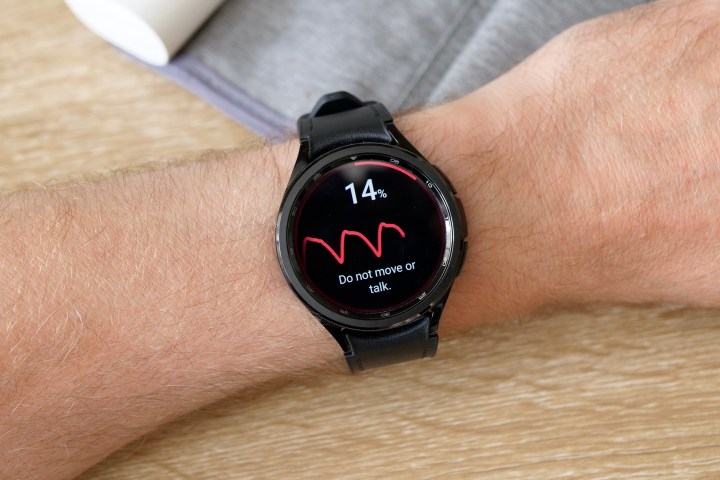
Samsung could soon be rolling out powerful new health features to Samsung smartwatches. A recent APK teardown from Android Authority has revealed that the upcoming Galaxy Watch 7 and Galaxy Watch Ultra could feature an AGEs (advanced glycation end products) index, continuous glucose monitoring, and family health tracking.
Here’s what we know about these potential features.
AGEs index
An AGE index is essentially an overview of metabolic health and the biological aging process since these are compounds that accumulate as you age. The Galaxy Watch will now be able to measure the production of AGEs compounds in your body when protein and fat molecules are oxidized by sugar molecules.
According to Diagnoptics, which is powering the feature, “AGEs play a pivotal role in the development of chronic age-related diseases such as diabetes, renal failure, and cardiovascular disease.”

AGEs can help predict the risk of diabetes, heart attack, and stroke, and give you a sense of your wellness since lower levels of AGEs are associated with physical exercise. Notably, measuring AGEs is noninvasive. According to Diagnoptics, they have a “characteristic fluorescence,” which explains how Samsung was able to incorporate the feature onto a smartwatch, though right now, it isn’t clear if older devices will get it.
Continuous glucose monitoring
Another possible feature that may come to the Galaxy Watch 7 is blood glucose monitoring. The APK teardown revealed a UI screen that shows the feature, but it’s not populated with any data, so it’s hard to tell what it’s measuring. This is a rumor we heard about earlier from Bloomberg, though the timeline suggested was as long as five years for non-invasive blood glucose monitoring to arrive on the market in “some form.”
Non-invasive is the keyword here. Currently, the only way to measure this for diabetics is to use a blood glucose meter, which requires breaking the skin with a needle and putting a drop of blood on a test strip. Obviously, that’s not something you want your smartwatch doing, so the challenge for Samsung will be figuring out how to estimate this level without breaking skin while still making it accurate.
Family health tracking
Finally, we come to another potential feature Android Authority has spotted in the latest Samsung Health app. It appears Samsung is working on getting family health data sharing with Galaxy Watches. You’ll be able to monitor the health tracking data of your child or family member with a screen showing the breakdown of key stats.

This is allowed for the parent Samsung account with an approval process, but your child or family member will need to have their own Galaxy Watch and need to wear it regularly enough to keep the stats populated. Naturally, this raises some privacy issues, but Samsung is addressing that with some built-in security and privacy checks.
Family members can stop sharing or change what they share whenever they want. They can also preview the data they want to share before it’s actually shared. To access a child’s health, a guardian’s consent is required. Shared data is automatically deleted and sharing rescinded after an extended period of inactivity. This feature seems likely to come to older smartwatches since there’s nothing here that seems to be tied to specific hardware requirements.



